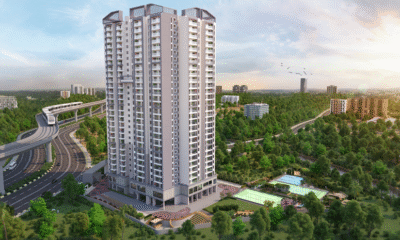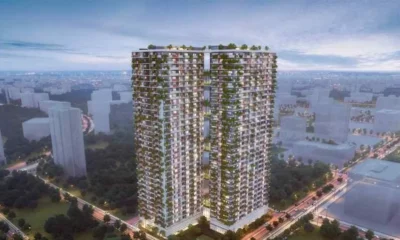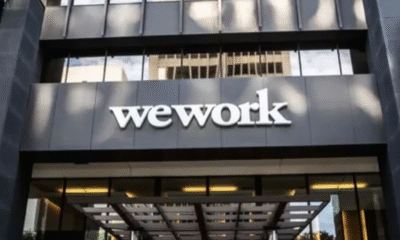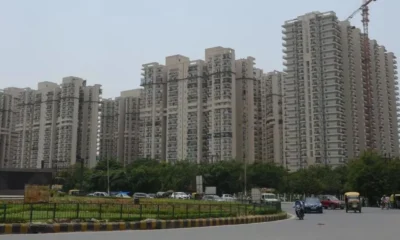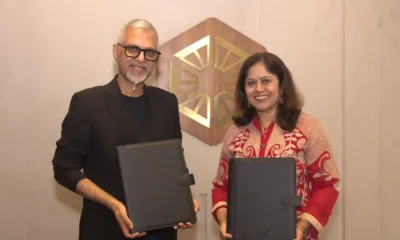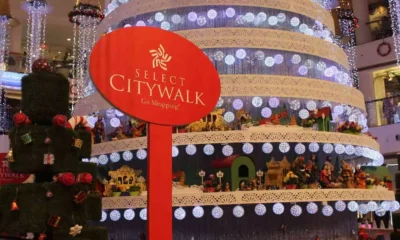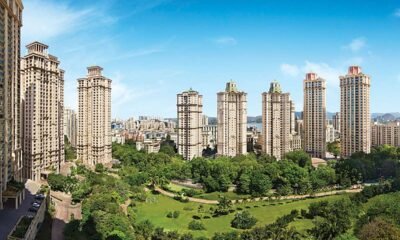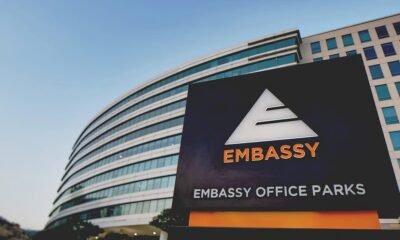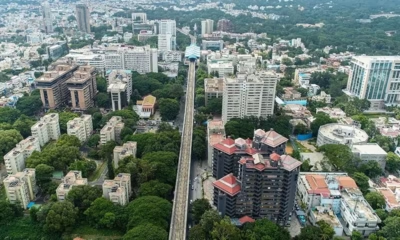News
As GRAP-3 Halts Construction, Real Estate Sector Seeks Support For Sustainable Growth

Noida/ Greater Noida, November 13, 2025: GRAP-3 restrictions in Delhi-NCR have imposed a blanket ban on most non-essential construction and demolition activities, causing hundreds of real estate projects to stall across the region. Developers widely support pollution control efforts, but they argue these blanket bans sharply increase both construction and labor costs while significantly impacting project delivery timelines—even when sites employ modern pollution control technologies and innovative construction methods.
According to them, clean air and timely housing are both public needs. Hence, the government and RERA should work together on a balanced framework that allows relief for projects following pollution norms, while projects facing forced delays should be granted automatic timeline extensions.
CREDAI Western UP has issued strict instructions to all its member developers to fully comply with the Stage III guidelines of the Graded Response Action Plan (GRAP-3), which include halting all pollution-causing activities and ensuring regular water sprinkling at construction sites. While developers publicly pledged to follow these directions, they have also made several appeals and placed demands before the government.
Automatic Extension
Dinesh Gupta, President of CREDAI Western UP, emphasized that construction stoppages caused by government orders—such as those imposed under GRAP-3—are beyond the control of developers. He argued that in such cases, RERA should automatically grant an extension of one to two months for affected projects to ensure that delivery timelines for homebuyers are not unfairly disrupted. Gupta stressed that while pollution control remains a critical priority for public health, there must be a reasonable balance with development so that real estate progress does not suffer undue setbacks.
Green Technology Deserves Relief

Suresh Garg, CMD of Nirala World, has highlighted that developers already employing advanced dust-control measures—such as anti-smog guns, site barricading, and green construction technologies—should be permitted to continue work under restricted circumstances, even when GRAP-3 restrictions are in effect. He strongly recommended to permit those promoters who are adhere to stringent environmental controls to progress, which can protect both environmental quality and project timelines simultaneously.
Labor migration Another Challenge

Shailendra Sharma, Chairman of Renox Group, pointed out that despite employing advanced technologies and comprehensive environmental measures, construction halts under government orders like GRAP-3 force workers to migrate away from sites. When projects eventually resume, developers face difficulty bringing labor back, which increases costs, disrupts schedules, and leads to delays in delivering possession to homebuyers. He mentioned that due to such situations, without any fault of a developer, they are being portrayed as sole reason of delay in delivery of the project.
Real Estate Affects Thousands of Families
Lt. Col. Ashwani Nagpal (Retd.), COO of Diligent Builders mentioned, “Every time GRAP restrictions are imposed, all forms of construction—including not just interiors but also common area development— comes to a halt, leading to delays in homebuyer possession timelines and negatively impacting project delivery and market confidence. The suspension covers earthwork, piling, plastering, tiling, flooring, and even the operation of ready-mix concrete plants, so progress on common amenities, landscaping, and shared facilities is stopped as well which are last mile activity of project completion. He even suggested that conditional or finishing work inside the units should be allowed which hardly cause pollution.”
Bans to Long Sessions
Himanshu Garg, Director of RG Group, expressed strong support for the government’s pollution-control steps under GRAP-3, but highlighted how even short halts of 15–20 days can cascade into delays of two to three months in real estate projects, due to the interdependent, staged nature of construction. Such delays have significant implications for homebuyers’ expectations and developers’ reputations, as disruptions ripple through supply chains, labor, and on-site coordination.
Need of a Balanced Approach
Vaibhav Agarwal, Promoter of Vision Business Park, stated that while addressing Delhi-NCR’s air quality crisis is crucial, authorities should adopt a balanced and nuanced approach to GRAP restrictions. He advocates stopping activities that generate heavy dust—such as core structural work and exterior construction—while permitting limited indoor and electrical works that do not contribute significantly to pollution. This, according to Agarwal, would help reduce economic losses for developers and workers without compromising environmental goals.

 News1 week ago
News1 week agoDN Group Sets National Expansion and IPO Roadmap at DN DAY 2025

 News3 weeks ago
News3 weeks agoGulshan Group Partners with Taj to Redefine Branded Living in Noida

 News2 weeks ago
News2 weeks agoBPTP Appoints Vineet Nanda as Chief Business Officer

 News3 weeks ago
News3 weeks agoDelhi–NCR Malls Roll Out Festive Christmas Celebrations with Lights, Events & Family Activities

 News5 days ago
News5 days agoIndian Real Estate in 2025: From Roller-Coaster Rides to Rock-Solid Foundations

 News2 weeks ago
News2 weeks agoEmbassy REIT Closes ₹530 Cr Selloff at Embassy Manyata in Bengaluru to EAAA Alternatives’ Real Assets Business

 News1 week ago
News1 week ago2025 Set the Base: What India’s Real Estate Momentum Signals for 2026

 News2 weeks ago
News2 weeks agoCP67 Mall Unveils Spectacular Christmas Celebrations Across Tricity






